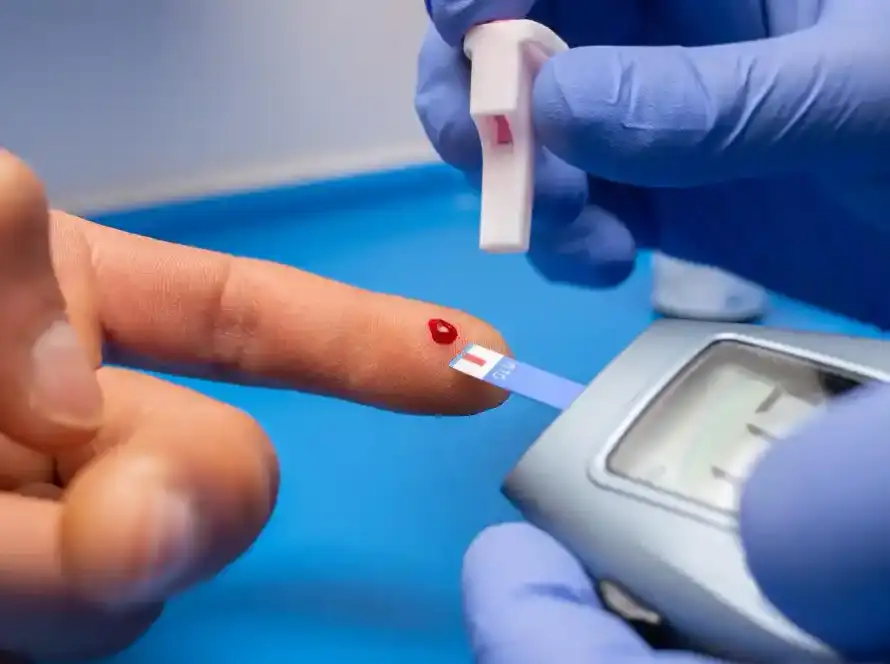A blood group is a classification of blood based on the presence or absence of specific antigens on the surface of red blood cells. The primary blood groups are A, B, AB, and O.
The Rhesus (Rh) factor is an antigen that can be either present (Rh-positive) or absent (Rh-negative) on the surface of red blood cells. It further classifies blood groups into types such as A+, A-, B+, B-, and so on.
Knowing your blood group and Rh factor is crucial for safe blood transfusions, pregnancy management, and in medical emergencies. It also helps in making informed decisions about health and participation in blood donation.
Your blood group and Rh factor can be determined through a simple blood test. This is done as part of your medical registration screening prior to admission to the university. You can check your blood group and rhesus factor on your clinic card (pink card).
No, your blood group is genetically determined and remains the same throughout your life.
The universal donor blood type is O-negative (O-), which means it can be donated to individuals of any blood group.
The universal recipient blood type is AB-positive (AB+), meaning individuals with this blood type can receive blood from any other group.
Rh incompatibility occurs when an Rh-negative mother carries an Rh-positive baby. The mother’s immune system may produce antibodies against the baby’s Rh-positive blood, which can cause complications during pregnancy or affect the baby’s health.
Yes, Rh-negative blood can be donated to Rh-positive individuals, but the reverse is not true. Rh-positive blood cannot be given to Rh-negative individuals due to the risk of immune reaction.
For most people, the Rh factor does not affect daily health. However, it is crucial during pregnancy, as Rh incompatibility can lead to complications.
Yes, blood group and Rh factor are inherited from your parents. The combination of your parents’ blood types determines your own.
Yes, depending on the parents’ blood groups and Rh factors, it is possible for their child to have a different blood group.
blood group
Blood group, also known as blood type, refers to the classification of blood-based on the presence or absence of specific antigens on the surface of red blood cells.
These antigens are inherited from our parents and play a critical role in determining compatibility in blood transfusions, organ transplants, and even pregnancy.
There are four primary blood groups:
- Blood Group A: This group has A antigens on the surface of red blood cells and B antibodies in the plasma.
- Blood Group B: Individuals with this group have B antigens in their red blood cells and A antibodies in their plasma.
- Blood Group AB: This is the universal recipient group, having both A and B antigens on the red blood cells and no A or B antibodies in the plasma.
- Blood Group O: Known as the universal donor group, it has no A or B antigens on the red blood cells but has both A and B antibodies in the plasma.
Each of these blood groups is vital for ensuring safe blood transfusions.
For example, a person with blood group A cannot receive blood from a group B donor due to the presence of antibodies that would attack the B antigens, leading to potentially life-threatening complications.
Rhesus (Rh) Factor
The Rhesus (Rh) factor is another antigen that can be either present or absent on the surface of red blood cells.
It is denoted as either Rh-positive (Rh+) or Rh-negative (Rh-).
The presence or absence of the Rh factor further categorises the blood groups into eight types: A+, A-, B+, B-, AB+, AB-, O+, and O-.
The Rh factor is particularly significant during pregnancy.
If an Rh-negative mother carries an Rh-positive baby, it can lead to Rh incompatibility, where the mother’s body may produce antibodies against the baby’s Rh-positive blood.
This condition, if not managed properly, can result in haemolytic disease of the newborn, a serious and potentially fatal condition.
Importance of Knowing Your Blood Group
For students, knowing your blood group and Rh factor is essential for several reasons:
- Medical Emergencies: In the event of an accident or a sudden illness requiring a blood transfusion, knowing your blood group can save precious time and possibly your life.
- Pregnancy and Childbirth: For female students, understanding your Rh status is crucial for future pregnancies. Early detection of Rh incompatibility allows for timely medical intervention, ensuring the health of both mother and child.
- Health Awareness: Being aware of your blood group and Rh factor fosters a sense of health consciousness. It enables you to make informed decisions about your health and participate in blood donation drives with the understanding of whom your blood can benefit.
How to Determine Your Blood Group
Determining your blood group and Rh factor is a simple process that can be done through a blood test.
Most students may have already undergone this test as part of their medical registration and screening for university admission.
However, if you are uncertain about your blood group or Rh factor, you are advised to visit the main campus health centre or any reputable medical laboratory for testing.
Final Thoughts
Understanding your blood group and the Rhesus factor is more than just a piece of medical trivia; it is a critical component of your overall health and well-being.
As students of Olabisi Onabanjo University, this knowledge equips you with the necessary tools to make informed health decisions, contribute to life-saving blood donations, and prepare for any future medical scenarios.
Take the initiative to learn and remember your blood group and Rh factor today.
It is a small step that could make a significant difference in your life and the lives of others.
Dr. Obisesan Damola
Dr. Obisesan is a dedicated medical professional with over five years of experience in the Nigerian healthcare industry, having worked across primary, secondary, and tertiary healthcare institutions. A graduate of the prestigious College of Medicine, University of Ibadan—the foremost medical training institution in Nigeria—Dr. Obisesan is deeply passionate about the intersection of technology and healthcare, actively exploring and writing about how innovations are transforming the industry. Known for his professionalism, empathy, and commitment to excellence, Dr. Obisesan combines clinical expertise with a forward-thinking approach to improve patient care and outcomes. Beyond medicine, he is dedicated to mentorship, research, and community engagement, embodying a holistic approach to advancing healthcare.




